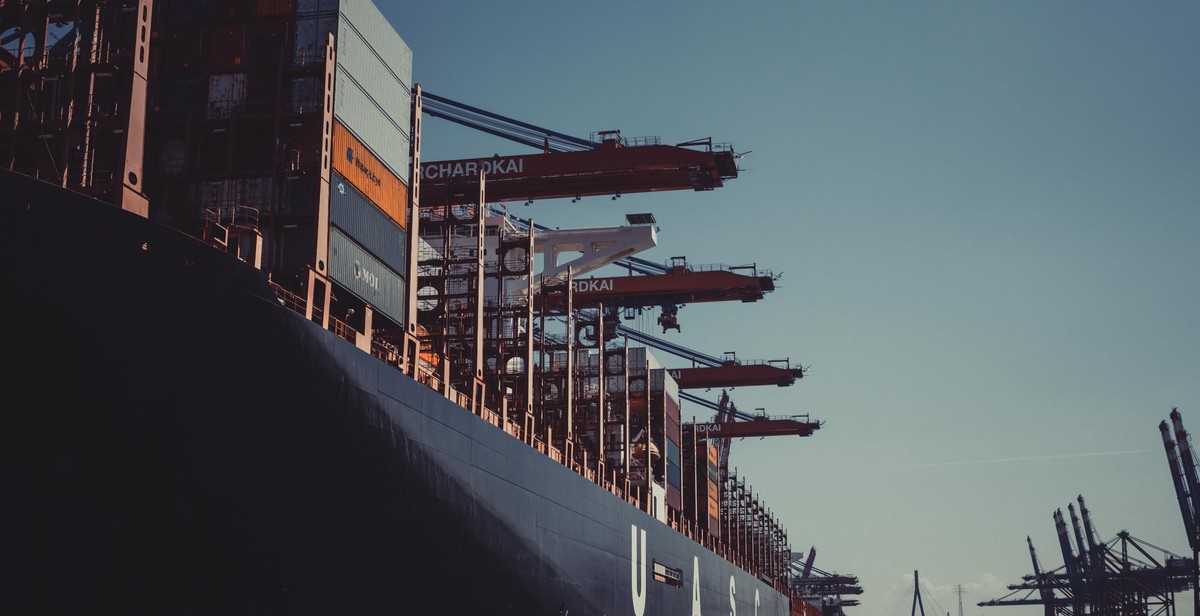How to Navigate International Trade Regulations: A Guide for Importers and Exporters
International trade regulations are a complex maze of rules and regulations that govern the import and export of goods and services between countries. As an importer or exporter, it is crucial to understand these regulations to avoid penalties, fines, and other legal consequences that can result from non-compliance.
Understanding International Trade Regulations
International trade regulations are laws and rules that govern the movement of goods and services across international borders. These regulations cover a wide range of areas, including tariffs, customs procedures, licensing requirements, and product standards.
International trade regulations vary from country to country and can change frequently, making it challenging for importers and exporters to keep up with the latest requirements.
Why is it Important to Navigate International Trade Regulations?
Complying with international trade regulations is important for several reasons. First, it helps importers and exporters avoid legal consequences, such as fines, penalties, and seizure of goods. Second, it can help build trust with customers and suppliers by demonstrating a commitment to ethical and legal business practices. Finally, it can help businesses avoid reputational damage that can result from non-compliance.
Who is Responsible for Complying with International Trade Regulations?
Both importers and exporters are responsible for complying with international trade regulations. Importers are responsible for ensuring that their goods comply with the regulations of the country they are importing into, while exporters are responsible for ensuring that their goods comply with the regulations of the country they are exporting to.
It is also important to note that compliance with international trade regulations is a shared responsibility between businesses and government agencies. Businesses must take steps to ensure compliance, while government agencies are responsible for enforcing the regulations and imposing penalties for non-compliance.

Key International Trade Regulations
International trade is governed by a complex web of regulations that can be difficult to navigate for both importers and exporters. Failure to comply with these regulations can result in costly penalties, delays, and even the loss of business. Here are some key international trade regulations that importers and exporters need to be aware of:
World Trade Organization (WTO) Agreements
The WTO is an international organization that regulates international trade by promoting free trade and removing trade barriers. The WTO has developed a number of agreements that govern international trade, including the General Agreement on Tariffs and Trade (GATT) and the Agreement on Trade-Related Aspects of Intellectual Property Rights (TRIPS). These agreements cover a range of issues, including tariffs, subsidies, intellectual property, and dispute resolution.
International Trade Agreements
In addition to WTO agreements, there are a number of bilateral and multilateral trade agreements between countries that govern international trade. Some of the most important international trade agreements include the North American Free Trade Agreement (NAFTA), the European Union (EU) Single Market, and the Trans-Pacific Partnership (TPP). These agreements can have a significant impact on trade between countries and can affect everything from tariffs to intellectual property rights.
Customs Regulations
Customs regulations are rules and procedures that govern the movement of goods across international borders. These regulations cover a range of issues, including import and export procedures, customs clearance, and duties and taxes. Importers and exporters need to be aware of the customs regulations in the countries they are doing business with and ensure that they comply with these regulations to avoid delays and penalties.
Export Controls
Export controls are regulations that restrict the export of certain goods and technologies to specific countries or individuals. These controls are designed to protect national security and prevent the proliferation of weapons of mass destruction. Exporters need to be aware of the export controls in their own country as well as the countries they are exporting to and ensure that they comply with these regulations to avoid penalties and legal consequences.
| Regulation | Key Points |
|---|---|
| WTO Agreements | Promotes free trade and removes trade barriers |
| International Trade Agreements | Bilateral and multilateral agreements that govern international trade |
| Customs Regulations | Rules and procedures that govern the movement of goods across international borders |
| Export Controls | Regulations that restrict the export of certain goods and technologies |

Navigating International Trade Regulations as an Importer
As an importer, it is crucial to understand and comply with the complex web of international trade regulations that govern the movement of goods across borders. The following are some essential tips to help you navigate the regulations effectively:
Identifying Applicable Regulations
Before importing any goods, it is vital to identify the relevant regulations that apply to your specific product and destination. These regulations may include customs requirements, import and export controls, product safety and labeling standards, and environmental and health regulations. Failure to comply with these regulations can lead to significant penalties and even the seizure of your goods at the border.
Working with Customs Brokers
Customs brokers are licensed professionals who specialize in navigating the complex regulations and paperwork required for importing and exporting goods. They can help you classify your products, determine the applicable duties and taxes, and ensure that all necessary documentation is in order. Working with a customs broker can help you avoid costly delays and compliance issues at the border.
Managing Compliance Risks
Importers need to be aware of the compliance risks associated with international trade. These risks can include the use of prohibited or restricted materials, non-compliance with labeling or safety standards, and violations of anti-bribery and corruption laws. To manage these risks effectively, importers should implement robust compliance programs that include due diligence on suppliers and business partners, ongoing monitoring of regulatory changes, and regular training for employees.
| Tips | Description |
|---|---|
| Identifying Applicable Regulations | Before importing any goods, it is vital to identify the relevant regulations that apply to your specific product and destination. |
| Working with Customs Brokers | Customs brokers are licensed professionals who specialize in navigating the complex regulations and paperwork required for importing and exporting goods. |
| Managing Compliance Risks | Importers need to be aware of the compliance risks associated with international trade and implement robust compliance programs to manage these risks effectively. |
By following these tips and staying up-to-date on the latest regulatory changes, importers can navigate international trade regulations with confidence and avoid costly compliance issues.

Navigating International Trade Regulations as an Exporter
Exporting goods to other countries can be a lucrative business opportunity for many companies. However, navigating the complex and constantly changing international trade regulations can be overwhelming, especially for small businesses. Here are some important things to consider when exporting goods:
Identifying Applicable Regulations
Before exporting goods, it is crucial to identify the applicable regulations in the destination country. These regulations can vary widely depending on the type of product, the country of origin, and the destination country. Some common regulations include import/export licenses, labeling requirements, and product safety standards.
To ensure compliance with these regulations, exporters should conduct thorough research and consult with experts, such as trade attorneys and regulatory agencies. Ignoring or violating these regulations can result in hefty fines, legal action, and damage to the company’s reputation.
Working with Freight Forwarders
Exporters can simplify the process of navigating international trade regulations by working with experienced freight forwarders. Freight forwarders are experts in international shipping logistics and can help ensure compliance with regulations, such as customs clearance and documentation requirements.
When selecting a freight forwarder, exporters should choose a reputable company with a strong track record of success. They should also ensure that the freight forwarder has experience in shipping to the destination country and is familiar with the applicable regulations.
Managing Compliance Risks
Exporters should develop a comprehensive compliance program to manage the risks associated with international trade regulations. This program should include policies and procedures for identifying and mitigating compliance risks, as well as training for employees on regulatory requirements.
Regular audits and assessments of the compliance program can help identify areas for improvement and ensure ongoing compliance with regulations. Exporters should also stay up-to-date on changes to international trade regulations and adjust their compliance program accordingly.
| Responsibility | Description |
|---|---|
| Identifying Applicable Regulations | Research and comply with regulations in the destination country |
| Working with Freight Forwarders | Select a reputable freight forwarder with experience in the destination country |
| Managing Compliance Risks | Develop a comprehensive compliance program and stay up-to-date on changes to regulations |

Resources for Navigating International Trade Regulations
International trade can be a complex and challenging process, with a wide range of regulations and requirements to navigate. Fortunately, there are a number of resources available to help importers and exporters stay informed and compliant with international trade regulations.
Government Agencies
Government agencies play a crucial role in regulating international trade and ensuring compliance with relevant laws and regulations. Some of the key agencies to be aware of include:
- U.S. Customs and Border Protection (CBP): Responsible for enforcing U.S. trade laws and regulations, CBP provides a wealth of information and resources for importers and exporters, including trade guides, webinars, and compliance publications.
- International Trade Administration (ITA): As part of the U.S. Department of Commerce, the ITA works to promote U.S. exports and ensure fair trade practices. Their website offers a range of resources, including trade data and market research, export guides, and trade events.
- World Trade Organization (WTO): The WTO is a global organization that sets rules for international trade and resolves disputes between member countries. Their website provides access to a range of trade-related data and publications.
Industry Associations
Industry associations are another valuable resource for importers and exporters, providing specialized expertise and networking opportunities. Some of the key associations to consider include:
- National Customs Brokers and Forwarders Association of America (NCBFAA): The NCBFAA is a trade association representing customs brokers, freight forwarders, and other trade professionals. They offer a range of resources and training opportunities, including webinars, conferences, and certification programs.
- National Association of Manufacturers (NAM): The NAM is a trade association representing U.S. manufacturers. Their website offers a range of resources and advocacy tools, including trade policy updates and industry data.
Trade Publications
Trade publications are an excellent source of news and analysis on the latest developments in international trade. Some of the top publications to consider include:
- Journal of Commerce (JOC): The JOC is a leading source of news and analysis on global trade and logistics. They offer a range of subscription options, including digital and print editions.
- International Trade Today: This daily newsletter provides the latest news and analysis on U.S. trade policy and regulations, with a focus on import and export compliance.
| Resource Type | Examples |
|---|---|
| Government Agencies | U.S. Customs and Border Protection (CBP), International Trade Administration (ITA), World Trade Organization (WTO) |
| Industry Associations | National Customs Brokers and Forwarders Association of America (NCBFAA), National Association of Manufacturers (NAM) |
| Trade Publications | Journal of Commerce (JOC), International Trade Today |
Conclusion
Navigating international trade regulations is critical for importers and exporters to ensure smooth and legal transactions. Failure to comply with regulations can result in hefty fines, delays, and even legal action. Therefore, it is essential to stay up-to-date with changes to regulations and seek expert advice when necessary.
Why Navigating International Trade Regulations is Critical
International trade regulations are complex and constantly changing, making it challenging for importers and exporters to keep up. However, failure to comply with these regulations can result in significant consequences, such as shipment delays, increased costs, and even legal action. Therefore, it is crucial to navigate these regulations to ensure smooth and legal transactions.
The Importance of Staying Up-to-Date with Changes to Regulations
International trade regulations are not static, and changes occur frequently. Staying up-to-date with these changes is critical to avoid any legal or financial repercussions. Importers and exporters must have a system in place to monitor changes to regulations and adjust their operations accordingly. Consulting with regulatory experts can also be beneficial to ensure compliance and avoid any negative impacts on their businesses.
| Benefits of Navigating International Trade Regulations |
|---|
| Ensures compliance with regulations |
| Avoids legal and financial consequences |
| Reduces shipment delays |
| Increases efficiency and cost-effectiveness |
In conclusion, navigating international trade regulations is critical for importers and exporters to ensure legal and smooth transactions. Staying up-to-date with changes to regulations and seeking expert advice when necessary can help businesses avoid any negative impacts on their operations.
